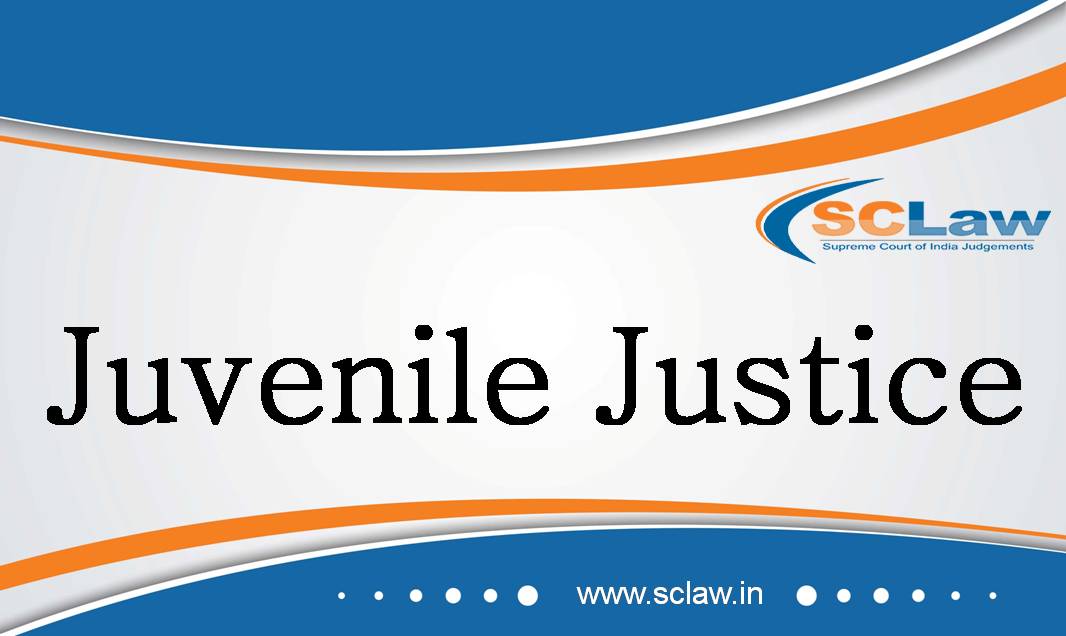Cancellation of Bail – Murder – Land dispute – Prior enmity – at the spot the accused persons named in the FIR attacked them and in the said incident brother of the informant died and other persons were seriously injured – Bail cancelled – Appeal allowed.
SUPREME COURT OF INDIA DIVISON BENCH YASHPAL SINGH — Appellant Vs. STATE OF UTTAR PRADESH AND ANOTHER — Respondent ( Before : M.R. Shah and Krishna Murari, JJ. ) Criminal…
HELD appellants never claimed any interest in the land and the fact that his bona fides are clear when he sought release in favour of 4th respondent i.e. the complainant, in our view, the application seeking discharge as filed by the present appellants deserves acceptance.
SUPREME COURT OF INDIA DIVISON BENCH P. VIJAY NATARAJ AND OTHERS — Appellant Vs. STATE AND ANOTHER — Respondent ( Before : Uday Umesh Lalit, CJI., and S. Ravindra Bhat,…
Murder – Bail – Cancellation of – As per the settled position of law, gravity and seriousness of the offence is a relevant consideration for the purpose of grant of bail – Role attributed to accused is catching hold of the deceased and the main role of causing injuries to the deceased is assigned to the co accused – Appeal allowed.
SUPREME COURT OF INDIA DIVISON BENCH NITU KUMAR — Appellant Vs. GULVEER AND ANOTHER — Respondent ( Before : M.R. Shah and Krishna Murari, JJ. ) Criminal Appeal No. 1547…
(CPC) – Order 1 Rule 10 – Impleadment as party – Unless the court suo motu directs to join any other person not party to the suit for effective decree and/or for proper adjudication as per Order 1 Rule 10 CPC, nobody can be permitted to be impleaded as defendants against the wish of the plaintiffs.
SUPREME COURT OF INDIA DIVISON BENCH SUDHAMAYEE PATTNAIK AND OTHERS — Appellant Vs. BIBHU PRASAD SAHOO AND OTHERS — Respondent ( Before : M.R. Shah and Krishna Murari, JJ. )…
Central Excise Rules, 1944 HELD Tribunal have rightly denied the Modvat credit to the appellant on ‘Guide Car’ and rightly confirmed the demand of Rs. 45,86,664/- being the Modvat credit availed by the appellant on ‘Guide Car’.
SUPREME COURT OF INDIA DIVISON BENCH M/S STEEL AUTHORITY OF INDIA LIMITED — Appellant Vs. COMMISSIONER, CENTRAL EXCISE AND CUSTOMS, BHUBANESWAR — Respondent ( Before : M.R. Shah and Krishna…
HELD we do not find that there was any fault, shortcoming or inadequacy in the quality, nature and manner of the performance on the terms and conditions on which allotment of the said apartment was offered to the appellants. Therefore, the appellants were not entitled to claim the refund of the consideration paid
SUPREME COURT OF INDIA DIVISON BENCH SUDHA AND OTHERS — Appellant Vs. JAIPRAKASH ASSOCIATES LIMITED — Respondent ( Before : Surya Kant and Abhay S. Oka, JJ. ) Civil Appeal…
Cr P C Section 406 – ‘Whether the criminal cases pending before different Trial Courts in four States can be transferred to one Trial Court in one State?; Whether transfer of case of one of the criminal case which is at the final stage of trial before concerned Court in Nagpur, can be directed to be transferred at such belated stage?’ HELD that to meet the ends of justice and fair trial, the transfer petitions deserve to be allowed.
SUPREME COURT OF INDIA SINGLE BENCH KETAN KANTILAL SETH — Appellant Vs. STATE OF GUJARAT AND OTHERS — Respondent ( Before : J.K. Maheshwari, J. ) Transfer Petition (Criminal) Nos.…
Medical negligence – Reduction of compensation – Wrong diagnosis and wrong treatment, which led to rashes on the body of the complainant-girl – so as to do the substantial justice to the complainant – If the amount of compensation is enhanced to a total sum of Rs. 4 lakhs (instead of Rs. 1 lakh awarded by the District Forum), the same shall meet the ends of justice.
SUPREME COURT OF INDIA DIVISON BENCH CHANDIGARH NURSING HOME AND ANOTHER — Appellant Vs. SUKHDEEP KAUR — Respondent ( Before : M.R. Shah and Krishna Murari, JJ. ) Civil Appeal…
Cancellation of bail – Grounds on which the said co-accused was released on bail and the grounds on which the present respondent is released on bail are same – Once the bail in favour of co-accused has been cancelled by this Court, the bail in the present case also requires to be cancelled – Bail cancelled.
SUPREME COURT OF INDIA DIVISON BENCH JOSEPH JOHNSON N. MAITHKURI — Appellant Vs. SUBRAHMANYA AND ANOTHER — Respondent ( Before : M.R. Shah and Krishna Murari, JJ. ) Criminal Appeal…
Constitution of India, 1950 – Article 136 – Juvenile Justice (Care and Protection of Children) Act, 2000 – Section 7A – Plea of juvenility could be raised in any court, at any stage even after the final disposal of the Special Leave Petition under Article 136 of the Constitution. If two views possible on evidence then view holding accused to be juvenile be favoured in borderline cases.
SUPREME COURT OF INDIA DIVISON BENCH VINOD KATARA — Appellant Vs. STATE OF UTTAR PRADESH — Respondent ( Before : Dinesh Maheshwari and J.B. Pardiwala, JJ. ) Writ Petition (Criminal)…










